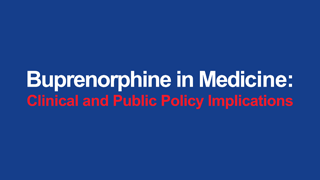The impact of financial discharge from methadone maintenance therapy on incarceration
DOI:
https://doi.org/10.5055/jom.2010.0034Keywords:
methadone maintenance therapy, financial dischargAbstract
Objectives: The authors sought to analyze the relationship between financial discharge from methadone maintenance therapy (MMT) and subsequent involvement in the criminal justice system among individuals receiving state-subsidized MMT slots and individuals who were financially discharged from MMT.Methods: The authors examined state-level client treatment records from all individuals who were on a subsidized MMT slot and all individuals who were discharged due to their inability to pay (financial discharge) from one of the three MMT programs during an 18-month period. The authors cross-referenced these records, through a state-managed database, with records of the Department of Corrections.
Results: Individuals in the control group had longer durations of stay in MMT and fewer other kinds of treatment admissions during the study period. An 81 percent of individuals in the financially discharged group received other treatment episodes versus 0.3 percent in the control group (p < 0.001). More than twice the number of individuals financially discharged from MMT were incarcerated during the study period when compared with the control group (67 percent vs 33 percent, p < 0.001). In logistic regression analysis, individuals in the control group had 0.26 times the odds of incarceration when compared with individuals financially discharged from MMT (95% CI: 0.09-0.73).
Conclusions: MMT has been shown to reduce involvement in the criminal justice system, yet cost of MMT continues to inhibit its accessibility. Our data suggest that removal of cost as a barrier to access MMT may facilitate longer treatment duration and minimize involvement with the criminal justice system.
References
Mumola CJ, Karberg JC: Drug Use and Dependence, State and Federal Prisoners, 2004. Washington, DC: U.S. Department of Justice, Bureau of Justice Statistics (BJS) 2006.
Mark TL, Woody GE, Juday T, et al.: The economic costs of heroin addiction in the United States. Drug Alcohol Depend. 2001; 61(2): 195-206.
Kleber HD: Methadone maintenance 4 decades later: Thousands of lives saved but still controversial. JAMA. 2008; 300(19): 2303-2305.
Langendam M, van Brussel G, Coutinho R, et al.: The impact of harm-reduction-based methadone treatment on mortality among heroin users. Am J Public Health. 2001; 91(5): 774-780.
Metzger D, Woody G, McLellan A, et al.: Human immunodeficiency virus seroconversion among intravenous drug users in- and out-of-treatment: An 18-month prospective follow-up. J Acquir Immune Defic Syndr. 1993; 6(9): 1049-1056.
Mattick RP, Breen C, Kimber J, et al.: Methadone maintenance therapy versus no opioid replacement therapy for opioid dependence. Cochrane Database Syst Rev. 2009; 3: CD002209.
Marsch LA: The efficacy of methadone maintenance interventions in reducing illicit opiate use, HIV risk behavior and criminality: A meta-analysis. Addiction. 1998; 93(4): 515-532.
Clausen T, Anchersen K, Waal H: Mortality prior to, during and after opioid maintenance treatment (OMT): A national prospective cross-registry study. Drug Alcohol Depend. 2008; 94(1-3): 151-157.
Sees KL, Delucchi KL, Masson C, et al.: Methadone maintenance vs 180-day psychosocially enriched detoxification for treatment of opioid dependence: A randomized controlled trial. JAMA. 2000; 283(10): 1303-1310.
Gossop M, Marsden J, Stewart D, et al.: Outcomes after methadone maintenance and methadone reduction treatments: Two-year follow-up results from the National Treatment Outcome Research Study. Drug Alcohol Depend. 2001; 62(3): 255-264.
Gruber V, Delucchi K, Kielstein A, et al.: A randomized trial of 6-month methadone maintenance with standard or minimal counseling versus 21-day methadone detoxification. Drug Alcohol Depend. 2008; 94(1-3): 199-206.
Masson C, Barnett P, Sees K, et al.: Cost and cost-effectiveness of standard methadone maintenance treatment compared to enriched 180-day methadone detoxification. Addiction. 2004; 99(6): 718-726.
Vanichseni S, Wongsuwan B, Choopanya K, et al.: A controlled trial of methadone maintenance in a population of intravenous drug users in Bangkok: Implications for prevention of HIV. Int J Addict. 1991; 26(12): 1313-1320.
Sheerin I, Green T, Sellman D, et al.: Reduction in crime by drug users on a methadone maintenance therapy programme in New Zealand. N Z Med J. 2004; 117(1190): U795.
Flynn PM, Porto JV, Rounds-Bryant JL, et al.: Costs and benefits of methadone treatment in DATOS, Part 1: Discharged versus continuing patients. J Maintenance Addict. 2002; 2(1-2): 129-149.
Hubbard RL, Craddock SG, Anderson J: Overview of 5-year follow up outcomes in the drug abuse treatment outcome studies (DATOS). J Subst Abuse Treat. 2003; 25(3): 125-134.
Deck D, Wiitala W, McFarland B, et al.: Medicaid coverage, methadone maintenance, and felony arrests: Outcomes of opiate treatment in two states. J Addict Dis. 2009; 28(2): 89-102.
Peterson JA, Schwartz RP, Mitchell SG, et al.: Why don’t out-of-treatment individuals enter methadone treatment programmes? Int J Drug Policy. 2010; 21(1): 36-42.
Zaller ND, Bazazi AR, Velazquez L, et al.: Attitudes toward methadone among out-of-treatment minority injection drug users: Implications for health disparities. Int J Environ Res Public Health. 2009; 6(2): 787-797.
Appel PW, Joseph H, Kott A, et al.: Selected in-treatment outcomes of long-term methadone maintenance treatment patients in New York State. Mt Sinai J Med. 2001; 68(1): 55-61.
Anglin MD, Speckart GR, Booth MW, et al.: Consequences and costs of shutting off methadone. Addict Behav. 1989; 14(3): 307-326.
Rosenbaum M, Washburn A, Knight K, et al.: Treatment as harm reduction, defunding as harm maximization: The case of methadone maintenance. J Psychoactive Drugs. 1996; 28(3): 241-249.
Published
How to Cite
Issue
Section
License
Copyright 2005-2025, Weston Medical Publishing, LLC and Journal of Opioid Management. All Rights Reserved.










